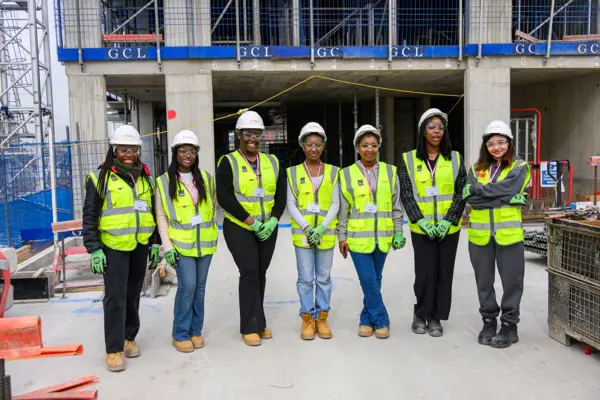All posts
-

The best and brightest in construction: SkillBuild 2025 National Finalists announced
The best construction trainees and apprentices from across the UK have been announced following this year’s SkillBuild Regional Qualifiers. The Regional Qualifier finalists all now progress to the SkillBuild 2025 National Final in November later this year.
Learn more chevron_right -

What is Go Construct Careers?
Go Construct Careers is a new and free to use feature within Go Construct to help those that want to take their first steps into construction industry at entry levels such as work experience, apprenticeship or T-Levels. Career changers that want to enter the industry at entry level or want to become a tutor or assessor.
Learn more chevron_right -

Top 20 famous buildings in the world
Humans have been constructing buildings for thousands of years - from simple huts to grand temples. Buildings are reflective of the world around us, and act as a visual representation of how it is continually changing.
Learn more chevron_right -
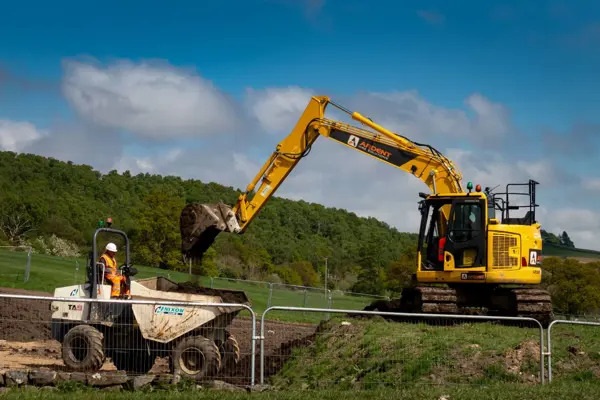
Plant operator training and key responsibilities
Plant operators drive, operate and maintain large construction machines and equipment on construction sites, such as excavators, dumpers and cranes.
Learn more chevron_right -

What is drylining
Drylining is a form of cladding for internal walls, and sometimes ceilings, to prepare them for painting or covering (for example in wallpaper). Plasterboard is attached to create a smooth surface.
Learn more chevron_right -

Entry level construction roles in the UK
Getting into the construction industry can be achieved in a few ways. One is by taking on an entry-level job, which means you start out at the beginning in terms of experience, although in some cases you may have existing knowledge from an apprenticeship or work experience.
Learn more chevron_right -

Ethnic diversity in construction
More people from black, Asian and ethnic minority backgrounds are choosing careers in construction and succeeding. This is good news not only for employees, but also for the industry as a whole. Greater diversity sets a virtuous circle in motion, making companies more attractive to a broader range of talented individuals.
Learn more chevron_right -

How is construction adapting for the future
The construction industry always adapts to the changing needs of society, the advancement in technology and new processes, from making eco-friendly materials to sustainability.
Learn more chevron_right -
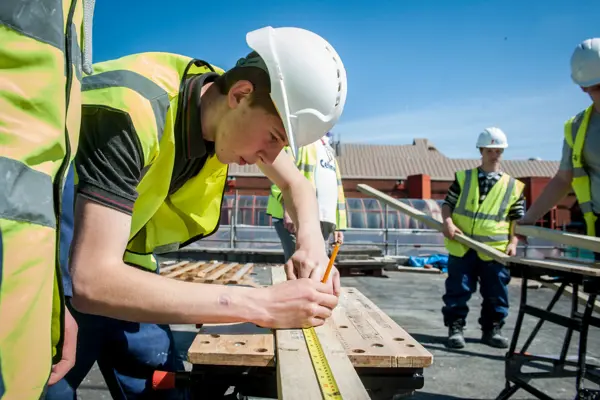
How long does it take to become a skilled carpenter
There is no standard timescale for how long it takes to become a qualified carpenter. It depends on a variety of factors, from the level of apprenticeship you are taking to the type of carpentry you want to do.
Learn more chevron_right -

The construction of the London Eye: a modern engineering marvel
When tourists think of London structures, they think of Big Ben, Buckingham Palace, St Pauls Cathedral … and the London Eye. It is a modern engineering marvel, Europe’s tallest cantilevered observation wheel and London’s most popular paid attraction. 3.5 million people take a ride in its 32 pods each year.
Learn more chevron_right -
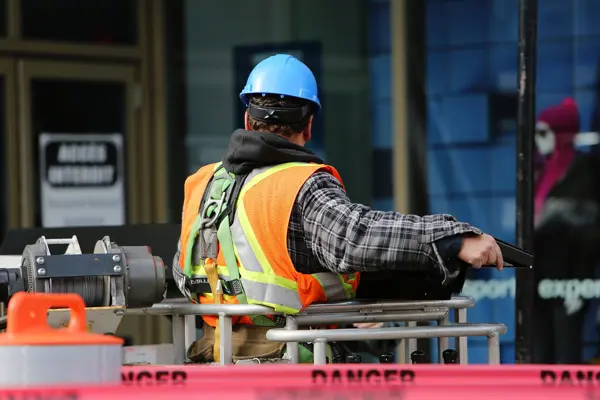
Building mental health in construction
The construction industry has, for a long time, focused on protecting the physical wellbeing of its workers, while the hard hat and safety clothing may offer protection from physical risks, what is being done to help support people in the industry who may be struggling with their mental health?
Learn more chevron_right -
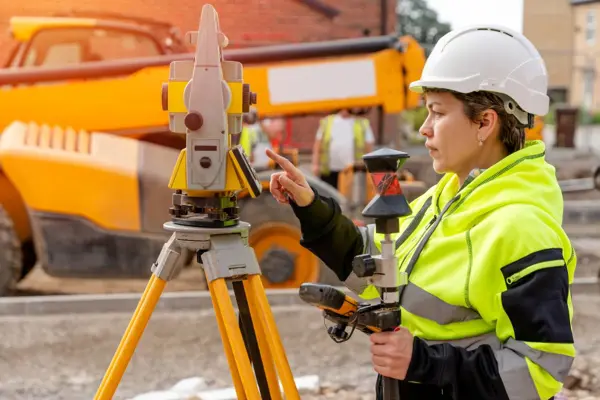
Quantity Surveyor qualifications
What qualifications do you need to become a Quantity Surveyor, a key job role in construction? Find out the routes into a career in quantity surveying, from degrees to degree apprenticeships, how long it takes to qualify and the skills you need.
Learn more chevron_right -

Become an electrician
There are several routes to becoming an electrician, whether you are a school leaver, an A-LEVEL student, or someone considering a change of career. You can gain the qualifications you need by completing a college course or an apprenticeship. If you already have relevant experience, you could apply directly to an employer for a job.
Learn more chevron_right -

Architecture careers
An architecture career is one of the most creative, complex and demanding jobs in construction. That is why it can take seven years to qualify as an architect! But though it is a long apprenticeship, designing buildings can be an incredibly rewarding profession that has a major impact on society.
Learn more chevron_right -

Results – now what?
Whether you have achieved above and beyond what you were hoping for, or feel disappointed in your results, you may be wondering what happens after results day. Can you do an apprenticeship with your grades? What are your options after passing? What are the next steps if you don’t get the grades you wanted?
Learn more chevron_right -
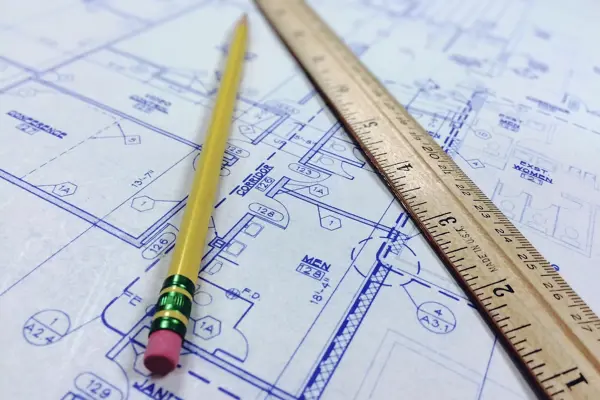
Architect qualifications
What qualifications do you need to become an architect, one of the most competitive and sought-after job roles in construction? Find out the routes into a career in architecture, from degrees to apprenticeships, as well as how to train as an architect, how long it takes and the skills you need.
Learn more chevron_right -

Carpentry 101: carpentry basics for beginners
Carpentry is an integral role within construction, and is well suited for those who are good with their hands, enjoy using tools, and appreciate the feeling of pride in doing a good job.
Learn more chevron_right -
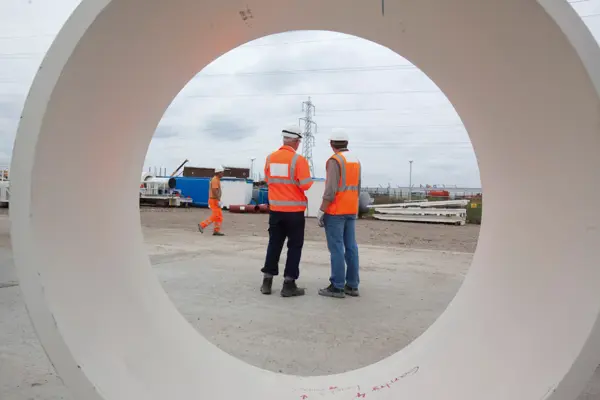
CPD in the construction industry
Continuing Professional Development (CPD) is widely recognised throughout the construction industry and allows individuals to reputably demonstrate their skills, knowledge and abilities.
Learn more chevron_right -

Different levels of HGV driver explained
The different classes of HGV drivers may seem confusing, so here we explain about what category of vehicles drivers are permitted to drive, some of the other HGV categories and the differences between HGV Class 1 and 2.
Learn more chevron_right -

From the armed forces to construction
Following a career in the armed forces, Craig Foster joined B Price Ltd. Here we find out how he found the transition to the construction industry.
Learn more chevron_right -

How and why are roads built?
Roads get us from A to B, we all know that – but how and why are they built?
Learn more chevron_right -

Iconic construction projects Burj Khalifa
The 828-metre Burj Khalifa skyscraper in Dubai is the world’s tallest building. Composed of 160 storeys, it is also the tallest free-standing structure in the world. Find out how this incredible structure was built, how long it took and what challenges the architects and construction team faced.
Learn more chevron_right -

Iconic construction projects The Shard
The Shard is still as staggering a sight today as it was in 2012 when it first opened. At 306m high, it is the tallest building in western Europe, and in London it towers over everything else on the skyline. It is also one of the most distinctive of skyscrapers, with its upper storeys tapering into the sky like a monumental shard of glass – hence its name.
Learn more chevron_right -

Iconic construction projects Wembley Stadium
Wembley Stadium is an iconic feature on the London skyline, and one of the most impressive sports venues in the world. 100 years after the original stadium was opened, find out more about the history of ‘The Home of Football’, how it was built and some of its most impressive features.
Learn more chevron_right -
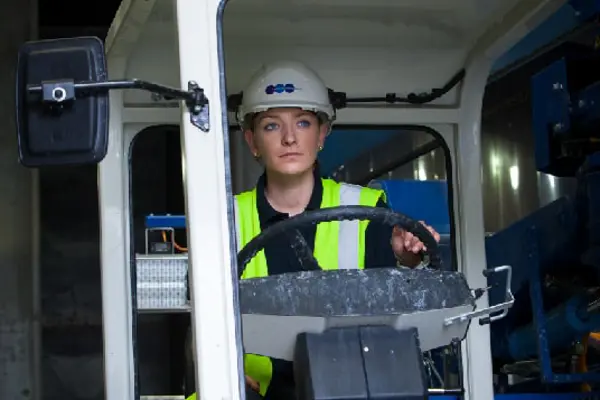
Site manager qualifications
Site managers, sometimes known as construction managers or site foreman, are responsible for running construction projects and supervising sites, ensuring the project runs smoothly, safely and is completed on time and in budget.
Learn more chevron_right -

The Definitive Guide to Joinery
Joiners are vital workers in the construction industry, creating products and structures from timber that are used in the construction process. Here is our guide to the joinery trade, how it differs from carpentry and the options for getting started as a joiner.
Learn more chevron_right -

Different types of construction organisation
Within any industry, there are various organisations that work to provide different services and formed in different ways. They are all shapes and sizes, ranging from one-man band traders to huge companies. This guide will explain a little about each type and how they operate, as you are likely to come across them all at some point in your career in construction.
Learn more chevron_right -

Registrations open for SkillBuild 2025
Registrations are now open for the UK’s largest and longest-running multi-trade skills competition, delivered by the Construction Industry Training Board (CITB). SkillBuild brings together the UK’s top construction trainee talent, skilled learners and apprentices to battle it out to be crowned winners of their chosen trade.
Learn more chevron_right -
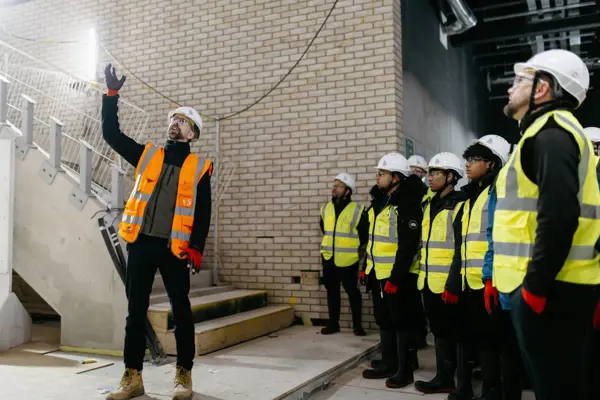
Book your place now for Open Doors 2025!
Are you curious about what it’s like to work in construction? Open Doors 2025 is your chance to go behind the scenes and discover the exciting opportunities in this thriving industry. Taking place from 17-22 March 2025, Open Doors offers unique experiences at live construction sites, offices, manufacturing facilities, training centres and more from across the UK.
Learn more chevron_right
